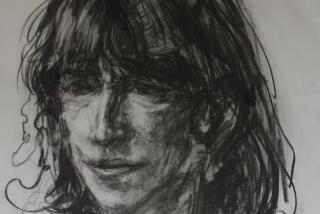The Tuchman Touch
- Share via
If the greatest satisfaction that can come to an author is to write good books that reach and inform a wide audience, then surely Barbara W. Tuchman’s professional life must have been supremely satisfying. Over the course of three decades she researched and wrote a half-dozen major historical studies, books that are as notable for their insights into the behavior of peoples and nations in times of stress and conflict as for their narrative sweep and their lucid and often elegant style. Beginning in 1962 with “The Guns of August,” a gripping account of the first month of World War I, each new Tuchman book quickly became a best-seller. Her final book, “The First Salute,” dealing with the American Revolution, had for some months been in that familiar position when Tuchman died this week at the age of 77.
She believed, as she said in an address in 1978, that when it came to history and biography”the writer’s object is--or should be--to hold the reader’s attention.” That this simple commonplace, familiar to every first-year journalism student, even required public statement by an exemplar of the craft says much about what has befallen the practice of historiography. What was it that made Barbara Tuchman a commanding writer? She attributed her success in no small part to a lack of any scholarly training in history. It was this, she believed, that saved her writing from dullness and pedantry, from the compulsion to include and footnote every tediously gathered fact, no matter how burdensome it might be to the flow of the narrative or inconsequential to the meaning of the story.
She was, in the best sense of the word, a popular historian. And that is why millions of readers who never met her nonetheless had the privilege of enjoying her company for many hours. Her books --illuminating, relevant, readable--will endure, and so the pleasure of that company will go on.
More to Read
Sign up for our Book Club newsletter
Get the latest news, events and more from the Los Angeles Times Book Club, and help us get L.A. reading and talking.
You may occasionally receive promotional content from the Los Angeles Times.








